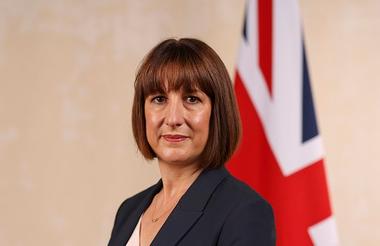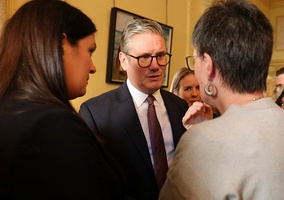The Civil Society Group (CSG) has urged the chancellor to provide support for digital transformation and AI adoption in the charity sector to ensure civil society keeps pace with technological change.
Today, CSG published its policy asks ahead of Rachel Reeves’s budget on 26 November, which outline key reforms the government should implement so that the UK voluntary sector can continue delivering “vital services”.
For the first time, the group, which is a collaboration of over 80 civil society infrastructure and membership organisations, called on the government to support the sector to “safely adopt AI”, including creating a fund to tackle the digital divide among smaller charities.
Support charities’ digital transformation journey
In its submission, CSG said digital technologies “are proving instrumental in creating a more efficient and resilient civil society”.
Therefore, the group asked the government to create a new fund to support small charities’ digital transformation journeys.
“At a time when digital engagement is fast becoming the norm amongst donors, volunteers and beneficiaries, it’s vital that smaller charities have the tools and resources they need to keep pace with the changing needs of their communities,” it said.
“This will in turn enable them to fundraise independently and improve outcomes for beneficiaries, alleviating pressure on statutory funding and public services.”
CSG said the fund should offer small grants for infrastructure and hardware (CRMs, website development or remote working applications) and digital skills training for small charity fundraisers (digital strategy or social media engagement).
“AI has the potential to reshape service delivery across the charity sector and the economy,” its submission adds.
“To ensure benefits reach people and places most at risk of being left behind, and to improve productivity in services people rely on, charities (especially small to mid-sized organisations) need targeted support to adopt AI safely, proportionately, and at pace.”
Address local authorities’ funding crisis
CSG said the crisis that has plagued local authorities has directly impacted the provision of services for the community, “but also funding streams that support those services when delivered in partnership or by charities that receive grants or contracts”.
It added that “continued underfunding of local government puts unsustainable pressure on the organisations delivering public services and meeting local needs”.
“It’s impacting the ability of voluntary, community, and social enterprise organisations to operate and increasing demand, with almost three-quarters of organisations unable to meet demand for the services they’re funded to deliver,” the submission says.
“This is particularly concerning for poorer areas, where charities have a smaller presence and are less likely to be able to raise other funds.”
While CSG acknowledged the tough fiscal context in which government makes decisions, it said not “fundamentally addressing the crisis in local government finance is a false economy”.
It recommended that civil society is valued as “an equal, strategic partner whose expertise is sought as a voice for local communities and marginalised groups, amplifying their concerns to local authorities for meaningful integration into decision-making and the co-production of community-focused services”.
“Local government should be sufficiently funded to support partnership working arrangements with the voluntary sector, and fulfil the commitments set out in the covenant,” it said.
Modernise tax and fiscal incentives
CSG urged the government to modernise tax and fiscal incentives to promote giving and donations, by, for instance, increasing tax thresholds in line with inflation, as many have remained static since their introduction.
“For instance, the cap on the amount of top-up that can be claimed under the gift aid small donation scheme (GASDS) is £8,000 per tax year (and up to £8,000 for each community building),” it said.
“If this limit had kept pace with inflation when many of the rules for GASDS were changed in April 2017, it would now stand at £10,785.”
CSG also called on the government to further encourage and promote philanthropy in the UK, whose potential “remains largely untapped and could be unlocked through stronger government leadership”.
It said that by promoting a culture of giving and leveraging available measures, the government could support charities and communities more effectively.
“While some progress has been made in recognising philanthropy within the impact economy, a more holistic, cross-government approach is needed to create an enabling environment for greater giving.”
It suggested setting up an office for the impact economy, which would act as a “front door” and “coordination hub for government departments and external partners”.
“The government’s current engagement with the impact economy is fragmented, under-resourced, and poorly coordinated, limiting its ability to collaborate effectively with philanthropists,” CSG said.
“This is a major missed opportunity to mobilise additional resources, spur innovation, and accelerate the delivery of the missions.”












